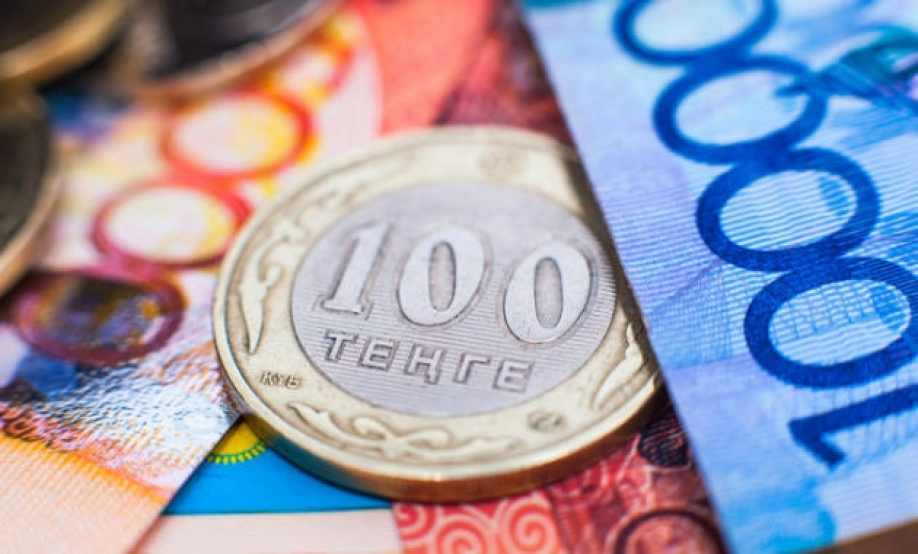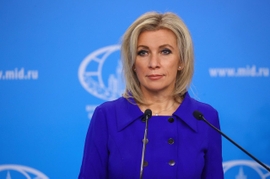Kazakhstani officials are bracing for a new round of American sanctions on Russia, which go into effect next week.
Earlier this month, the Trump administration announced its intent to issue a new batch of sanctions against Russia, after the poisoning of a former Russian spy and his daughter living in England. The sanctions are expected to come into force on August 22.
Some officials say the new wave of sanctions will unlikely have an impact on Kazakhstan’s economy, however. Timur Suleimenov, the National Economy Minister, is confident that dialogue with Washington and Moscow will soften the blow to Russia’s neighboring states, which includes Kazakhstan.
“They [the U.S.] have a fairly good understanding, and even in the process of developing and administering sanctions, they gave us a guarantee that they will take into account the interests of our country,” Suleimenov told journalists on Tuesday according to reports by Interfax.
Under the new sanctions, American businesses are forbidden to obtain an export license to sell gas turbine engines, electronics, integrated circuits and testing and calibration equipment to Russia. Russia’s economy is still being affected by previous sanctions imposed by the European Union, the U.S. and other countries.
Meanwhile, the Ministry of National Economy of Kazakhstan does not exclude that new sanctions may indirectly affect the country’s budget and its national currency, the tenge.
“The exchange rate of the tenge depends on those factors that are difficult to predict – ranging from the monetary policy of the United States to the impact of sanctions on the economy of our closest neighbors and trade partners,” Suleimenov said on Tuesday.
Kazakhstanis have already felt the power of sanctions placed on Russia after the exchange rate of the tenge fell. As a result of morning trades on Monday, the weighted average dollar rate amounted to 363.15 tenge, reflective of an increase of 6.62 tenge and compared to morning trading on the previous Friday. Within less than one week, the tenge has twice surpassed its record low, in February 2016.
The National Bank of Kazakhstan explained the fall of the tenge as being tied to tightening sanctions against Russia and a decrease in oil prices.
“A weakening ruble weakens the tenge, as Russia is the largest trading partner of Kazakhstan,” Rasul Rysmambetov, a financial expert, told Forbes.
“The tenge, potentially weakening for more than three months, will force the National Bank to take slapdash measures to keep inflation and prices in the specified corridor to protect Kazakhstani businesses,” Rysmambetov said.
Russia is ranked as Kazakhstan’s largest trading partner, which means their economies are intertwined. Kazakhstan’s imports from its giant northern neighbor in the first half of 2017 exceeded the entire volume of the country’s trade with any other country.
According to the Russian Federal Customs Service, Kazakhstan absorbed more than $12 billion worth of Russian goods in 2017, while Moscow imported $4.9 billion from Kazakhstan. The largest share in mutual deliveries was for mineral products, machinery, equipment and vehicles, chemical products, metals and metal products, as well as foodstuffs and agricultural raw materials.
Some believe Kazakhstan may be more affected if the U.S. imposes sanctions specified in the “Defending American Security from Kremlin Aggression Act of 2018,” which was spearheaded by Republican Senator Lindsey Graham. The document details broad sanctions on investments in Russian energy projects, Russian sovereign debt and national banks, including Sberbank, VTB, Gazprombank, Rosselkhozbank, and Promsvyazbank. The act may be passed by Congress and become law sometime this fall.
“This package of sanctions will definitely hit the ruble because Federal Loan Obligations and Eurobonds will be abandoned by the overwhelming majority of non-residents. After the ruble, the tenge will collapse,” says Sergei Domnin, an expert at the Institute of World Economy and Politics at the Foundation.







 The modernized and expanded Georgian segment of the Baku-Tbilisi-Kars (BTK) railway is set to recommence freight operations this month.
The modernized and expanded Georgian segment of the Baku-Tbilisi-Kars (BTK) railway is set to recommence freight operations this month.
 The Azerbaijani government has rejected the recent claims made by French Interior Minister Gérard Darmanin, who accused Baku of fostering separatis...
The Azerbaijani government has rejected the recent claims made by French Interior Minister Gérard Darmanin, who accused Baku of fostering separatis...
 As of April 27, additional 48 bodies were unearthed in the liberated lands of Azerbaijan, bringing the total count of discovered remains to over 600.
As of April 27, additional 48 bodies were unearthed in the liberated lands of Azerbaijan, bringing the total count of discovered remains to over 600.
 Ulviyya Fataliyeva, a female Azerbaijani chess grandmaster, was crowned this week at the European Women’s Chess Championship (EWCC) in Rhodes, Gree...
Ulviyya Fataliyeva, a female Azerbaijani chess grandmaster, was crowned this week at the European Women’s Chess Championship (EWCC) in Rhodes, Gree...
 President Ilham Aliyev praised Azerbaijan’s cultural diversity as a key factor in fostering peace, stability, and unity within the country, where a...
President Ilham Aliyev praised Azerbaijan’s cultural diversity as a key factor in fostering peace, stability, and unity within the country, where a...



